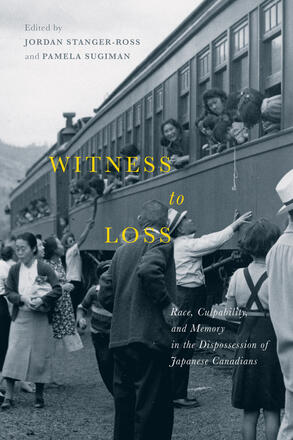
Witness to Loss
Race, Culpability, and Memory in the Dispossession of Japanese Canadians
A Japanese Canadian participated in the government's destruction of his own community. How should he be remembered?
Description
When the federal government uprooted and interned Japanese Canadians en masse in 1942, Kishizo Kimura saw his life upended along with tens of thousands of others. But his story is also unique: as a member of two controversial committees that oversaw the forced sale of the property of Japanese Canadians in Vancouver during the Second World War, Kimura participated in the dispossession of his own community. In Witness to Loss Kimura's previously unknown memoir – written in the last years of his life – is translated from Japanese to English and published for the first time. This remarkable document chronicles a history of racism in British Columbia, describes the activities of the committees on which Kimura served, and seeks to defend his actions. Diverse reflections of leading historians, sociologists, and a community activist and educator who lived through this history give context to the memoir, inviting readers to grapple with a rich and contentious past. More complex than just hero or villain, oppressor or victim, Kimura raises important questions about the meaning of resistance and collaboration and the constraints faced by an entire generation. Illuminating the difficult, even impossible, circumstances that confronted the victims of racist state action in the mid-twentieth century, Witness to Loss reminds us that the challenge of understanding is greater than that of judgment.
Reviews
"This extremely valuable memoir offers a thought-provoking new perspective on the logics of dispossession, and the complex questions it raises are sure to animate public debate for many years to come. The memoir and accompanying essays should be essential reading for scholars of Canadian history." Sean Mills, University of Toronto, and author of A Place in the Sun: Haiti, Haitians, and the Remaking of Quebec
"Editors Jordan Stanger-Ross and Pamela Sugiman present the memoir-in-translation of Kishizo Kimura… His was an internal struggle, a careful negotiation with institutional racism, grounded in his belief that his "obedience" was an act of quiet advocacy for his community. ... These essays push the discussion beyond simplistic binaries of right or wrong, victim or collaborator. For readers, the experience is illuminating and challenging - unsettling at times, but ultimately worthwhile." Canada's History
"Witness to Loss is an insider's view of the unfortunate experiences of the Canadian Japanese during World War II; the commentaries are a reminder that history, like beauty, is often in the eye of the beholder. It would inspire a lively seminar debate on memory as a source of historical knowledge. Well-chosen illustrations, brief biographies of the principal actors, and an extensive bibliography add to the book's value. Overall, it is a significant contribution to Japanese Canadian historiography." Canadian Journal of History
"In Witness to Loss, one finds a full portrait of the events of the war years. ... [The book] leaves one with the urge to walk the streets of pre-Second World War Vancouver where the Japanese-Canadian community was well established: Powell Street, East Cordova Street, Alexander Street and Hastings Street." Canadian Jewish News
"Kimura's 100-page memoir is an enigmatic text, in part because his reasons for writing it are debatable. Did he write to inspire pride - as he says, to let younger Japanese Canadians know his generation quietly resisted? Or does he write to absolve himself of the sense he betrayed his people? ... It is in [the] details that he reveals the sleight of hand by which a discussion of insurance policies, for example, morphs into the federal government's forced sale of Japanese Canadians' fishing vessels at below-market prices. Evil can indeed be banal." The Globe and Mail